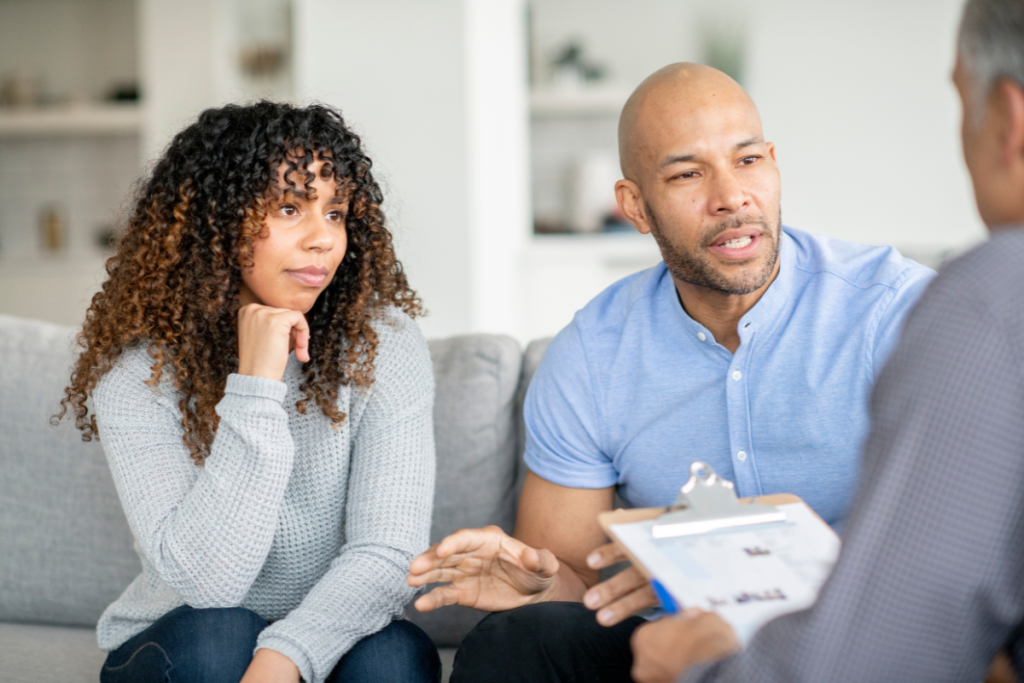Singapore, with its fast-paced lifestyle and multicultural fabric, presents unique challenges and opportunities for modern couples. Amidst work demands, financial pressures, and evolving societal roles, even the strongest relationships can face strain. When communication breaks down or intimacy wanes, some couples find themselves at a crossroads—torn between trying to repair their marriage or walking away. Marriage counselling offers a supportive, neutral space to work through challenges, rebuild trust, and rediscover shared meaning. But how exactly does it work in Singapore, and what should couples expect from the process? This guide explores the framework of marriage counselling in Singapore, the methods used, and the potential benefits for couples on the path to healing.
What is Marriage Counselling?
Marriage counselling, also known as couples therapy, is a form of psychotherapy focused on improving communication, resolving conflict, and strengthening emotional and physical bonds between partners. A trained professional facilitates this process by helping couples explore their relationship dynamics, confront unhelpful patterns, and develop healthier ways of relating.
In Singapore, marriage counselling is offered by licensed therapists, psychologists, or counsellors affiliated with organisations such as REACH Community Services, ThriveSg, or private practices. Sessions are typically conducted in English, Mandarin, Malay, or Tamil, depending on the client’s language preference.
Common Reasons Singaporean Couples Seek Counselling
Though each marriage is unique, common issues that lead couples to seek help include:
- Communication breakdown: Repeated misunderstandings, silence, or constant arguments.
- Unresolved conflict: Inability to find common ground during disagreements, leading to built-up resentment.
- Infidelity or emotional affairs: Rebuilding trust after betrayal.
- Intimacy issues: Emotional or sexual disconnection, often linked to stress, unresolved trauma, or health issues.
- Financial stress: Disagreements over saving, spending, or managing debt.
- Parenting differences: Clashing views on discipline, education, or lifestyle choices.
- In-law interference: Tension from extended family expectations or cultural obligations.
- Life transitions: Coping with job loss, relocation, illness, or empty nesting.
In many cases, the goal of counselling is not just to “save” the marriage but to help couples make informed, thoughtful decisions about their future—whether that means staying together or parting on respectful terms.
How Does Marriage Counselling Work in Singapore?
1. Initial Consultation and Assessment
The process usually begins with an initial consultation. This first session allows the counsellor to understand the couple’s background, current challenges, and goals for therapy.
- Couples may be asked to complete intake forms or questionnaires.
- Some therapists conduct individual interviews with each partner before joint sessions commence.
- This phase helps build rapport and sets the stage for customised therapeutic planning.
2. Developing a Treatment Plan
After the assessment, the therapist collaborates with the couple to create a structured plan that:
- Sets realistic goals (e.g., improved communication, conflict de-escalation).
- Establishes the frequency of sessions (weekly or bi-weekly).
- Determines the appropriate therapeutic model to use.
Common Counselling Approaches in Singapore
Many marriage counsellors in Singapore use evidence-based models tailored to a couple’s unique circumstances:
- The Gottman Method: Focuses on building a solid friendship, managing conflict healthily, and creating shared meaning. It’s widely used in Singapore and supported by decades of research.
- Emotionally Focused Therapy (EFT): Designed to enhance emotional bonds by addressing attachment needs and reshaping negative interaction cycles.
- Cognitive Behavioural Therapy (CBT) for Couples: Identifies harmful thought patterns and behaviours, promoting more rational, empathetic responses.
- Imago Relationship Therapy: Helps couples understand how early childhood experiences shape adult relationships, increasing empathy and connection.
These approaches are often integrated for a holistic experience, depending on the couple’s evolving needs.
What Happens During a Session?
- Session duration: Typically between 50 to 90 minutes.
- Setting: A private, confidential, and non-judgemental space.
- Facilitation: The counsellor guides the conversation, ensuring both partners feel heard and respected.
- Skills practice: Couples are taught how to actively listen, use “I” statements, and manage difficult emotions constructively.
- Homework: Exercises might be assigned between sessions to reinforce insights or build healthy habits.
Counselling is not about assigning blame—it’s about mutual understanding, accountability, and growth.
How Long Does It Take?
There’s no one-size-fits-all duration. Therapy could range from a few focused sessions (4–8) for minor issues, to long-term support (12–20+ sessions) for deep-seated or recurring challenges. The pace largely depends on:
- The severity and complexity of the issues.
- The couple’s commitment to applying what they’ve learned.
- External stressors (e.g., legal proceedings, mental health concerns) affecting progress.
What to Expect—and Not Expect
✅ What to Expect
- Confidentiality: Licensed therapists in Singapore follow strict codes of conduct.
- Equal attention: A good counsellor remains neutral, giving both parties space to speak.
- Personal growth: Expect to reflect on your role in the relationship dynamic.
- Practical tools: Techniques for communication, empathy, and emotional regulation.
- Strength-based focus: Sessions may also explore what’s working in the relationship.
❌ What Not to Expect
- Quick fixes: Counselling is a process that takes time.
- Judgement: You won’t be shamed or criticised for your feelings or experiences.
- Direct advice: Therapists won’t tell you what decision to make; instead, they help you explore your options.
- Instant agreement: Progress can be slow, with some back-and-forth tension as deep issues emerge.
Choosing a Marriage Counsellor in Singapore
Finding the right fit is crucial. Consider the following:
- Qualifications: Look for credentials from reputable bodies such as the Singapore Association for Counselling (SAC).
- Experience: Prioritise therapists who specialise in couples therapy or marriage work.
- Approach: Research whether their methods (e.g., Gottman, EFT) align with your values.
- Cultural awareness: A counsellor attuned to Singaporean culture, religious backgrounds, or ethnic sensitivities may better understand your context.
- Accessibility and cost: Sessions can range from SGD 100 to SGD 400. Subsidised options are available at community organisations like Care Corner or REACH Community Services.
When to Seek Help

Couples don’t need to be in crisis to benefit from counselling. In fact, early intervention can prevent deeper damage. Seek help when:
- Arguments feel cyclical or toxic.
- One or both partners feel emotionally neglected.
- Trust has been broken.
- You’re contemplating separation or divorce.
- You just want to deepen your connection and improve communication.
Conclusion
Marriage counselling in Singapore provides couples with a structured, empathetic, and confidential pathway to rebuild trust, reconnect emotionally, and improve long-term satisfaction in their relationship. Whether navigating a rough patch or confronting a major crisis, couples who commit to the process often emerge with greater self-awareness, better communication, and stronger bonds.
Choosing to seek help is not a sign of weakness—it’s an act of courage and care. By taking that step, Singaporean couples can transform challenges into opportunities and build a marriage that not only survives but thrives.







